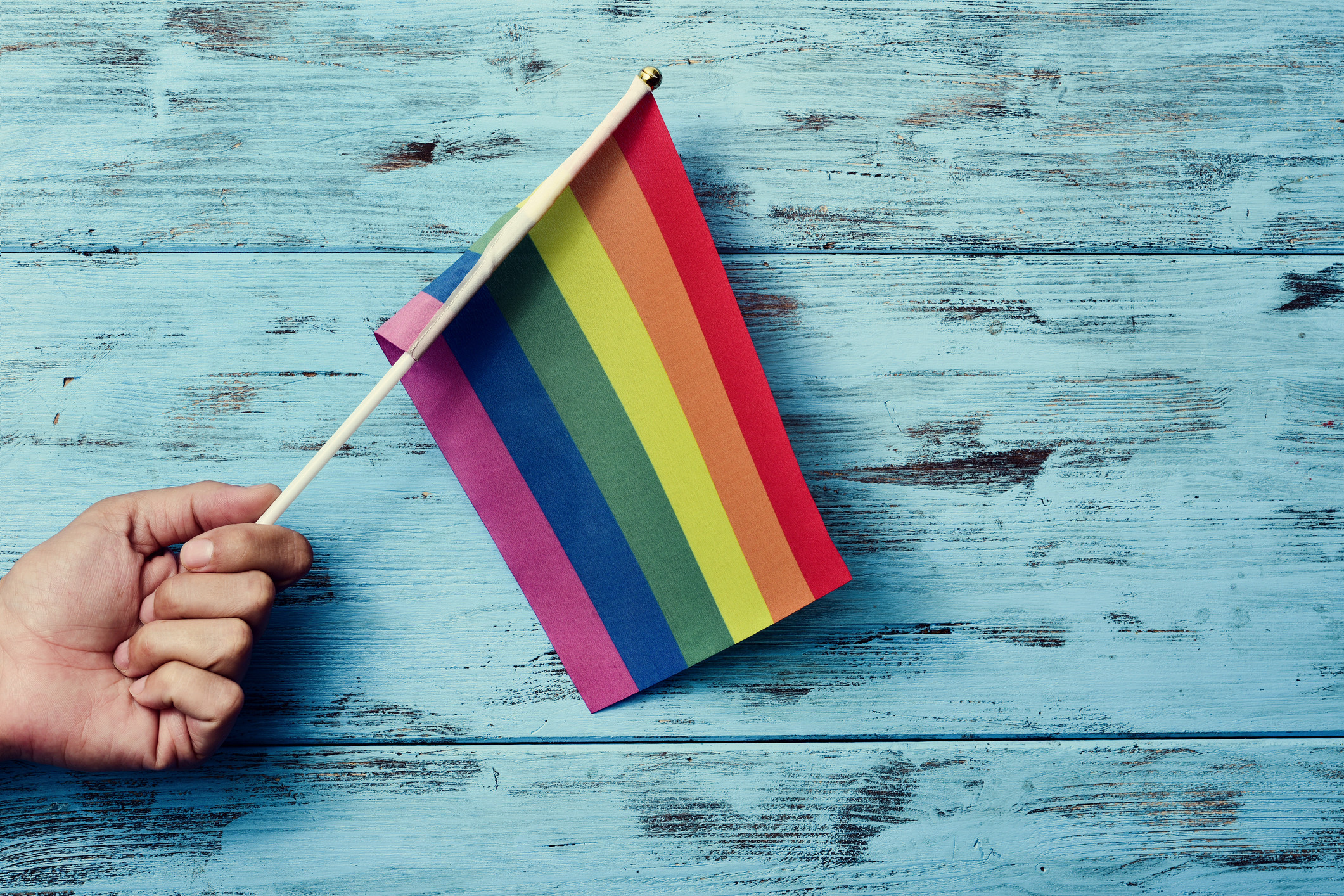3 ways to protect LGBTI rights across the world

May 17 is the International Day Against Homophobia, Transphobia, and Biphobia.
Image: REUTERS/Lucas Jackson
Stay up to date:
LGBTI Inclusion
Listen to the article
- May 17 is the International Day Against Homophobia, Transphobia, and Biphobia.
- The theme of the day is "Together, we Resist, Support and Heal."
- Here are three ways to tackle violence and discrimination experienced by Lesbian, Gay, Bisexual, Transgender and Intersex (LGBTI) people.
May 17 marks the International Day Against Homophobia, Transphobia, and Biphobia (IDAHOBIT), aimed to celebrate sexual and gender diversities, and raise awareness against continued violence and discrimination experienced by Lesbian, Gay, Bisexual, Transgender and Intersex (LGBTI) people.
The international day was initiated by political activist Louis-Georges Tin in 2004, and the date May 17 was chosen to commemorate the decision of the World Health Organization (WHO) on May 17, 1990, to declassify homosexuality as a mental disorder. Further progress took another 29 years until 2019, when the WHO decided to no longer classify transgender identities (described as “gender incongruence”) as mental and behavioral disorders.
While there have been landmark rulings to advance LGBTI equality in more and more countries, the human rights situation of LGBTI people remains a grave concern.
Progress has been uneven: at least 69 countries still criminalize same-sex relations between consenting adults, and the year of 2020 has shown a growing backlash against the protection of LGBTI rights. Hard-earned legal rights have been rolled back in several countries, from municipalities declaring to be “LGBTI free zones” to new anti-transgender legislations.
LGBTI people have also been falsely blamed, abused and stigmatized as vectors of disease during the pandemic, fueling hate and violence and social media scapegoating. Harassment, physical assault and fatal violence against LGBTI people persists across the globe. In 2021 alone, the Human Rights Campaign already reported at least 24 killings of transgender and non-binary people.
IDAHOBIT is a day that calls for continued support and protection of LGBTI rights across the world. To tackle violence and discrimination against the community, here are three ways that can help make our societies a safer place:
Increase acceptance and social support
In many countries, there has been a rising acceptance of homosexuality over the past two decades, and one in five adults in the US knows someone who uses non-binary pronouns other than he or she.
Yet, progress remains polarized and sharply divided by country. Rigid norms and beliefs around sexual orientation, gender identity and expression continue to challenge the social and family acceptance of LGBTI people. For example, they can lead to a continued practice of so-called “conversion therapy,” which aims to change a person's sexual orientation or to suppress a person's gender identity. This practice has only been banned in five countries.
A more inclusive understanding and representation of history and cultures could lead to greater acceptance of LGBTI identities. From prehistoric rock paintings in South Africa and early Ottoman literature to mythological figures like the Greek king of Gods Zeus or the Filipina transgender Goddess of fertility, Lakapati, to presumed historical figures like Alexander the Great or Leonardo da Vinci, LGBTI people have shaped the history of humanity since the earliest time periods and have always been a vital part of our communities and cultures.
What is the Forum doing to boost inclusion for LGBTI people?
Increase protection through non-discrimination laws, regulations and policies
To drive positive culture change and build more inclusive communities and societies, governments and businesses can enact non-discrimination laws and policies as well as repeal current laws and policies that are aimed at discriminating or by design have discriminatory impact on LGBTI people.
According to civil society organization ILGA, 11 countries provide explicit constitutional protection against discrimination based on sexual orientation, and 81 countries have employment non-discrimination laws that protect the rights of LGBTI workers. Particularly where local laws are inadequate, businesses can put in place policies to prohibit and prevent harassment and discrimination of LGBTI professionals. More than 90% of Fortune 500 companies already prohibit discrimination on the basis of sexual orientation, and 83% prohibit discrimination based on gender identity, compared to just three in 2000.
Increase visibility and representation
Greater visibility and representation of LGBTI people in popular culture and leadership increases wider societal acceptance, and public opinion is more likely to drive corporate and legislative equality policies. But LGBTI people are not proportionately represented on television and made up just 9.1% of the regular characters on scripted TV shows in the US, according to a report by media advocacy group GLAAD.
Some countries entirely ban or censor the public broadcast of LGBTI content. Looking at representation in business leadership, until Apple’s CEO Tim Cook came out in 2014, there were no openly gay Fortune 500 CEOs at all. Today, there are four openly LGBTI CEOs. And in 2020, Petra De Sutter was appointed Belgium’s deputy prime minister, making her Europe's most senior transgender politician.
This year, IDAHOBIT is celebrated throughout the world under the theme “Together, we Resist, Support and Heal”.
What's the World Economic Forum doing about diversity, equity and inclusion?
Don't miss any update on this topic
Create a free account and access your personalized content collection with our latest publications and analyses.
License and Republishing
World Economic Forum articles may be republished in accordance with the Creative Commons Attribution-NonCommercial-NoDerivatives 4.0 International Public License, and in accordance with our Terms of Use.
The views expressed in this article are those of the author alone and not the World Economic Forum.
Forum Stories newsletter
Bringing you weekly curated insights and analysis on the global issues that matter.
More on Forum InstitutionalSee all
World Economic Forum
May 16, 2025
Victoria Masterson, Stephen Hall and Madeleine North
March 25, 2025
Lorez Qehaja
March 19, 2025








